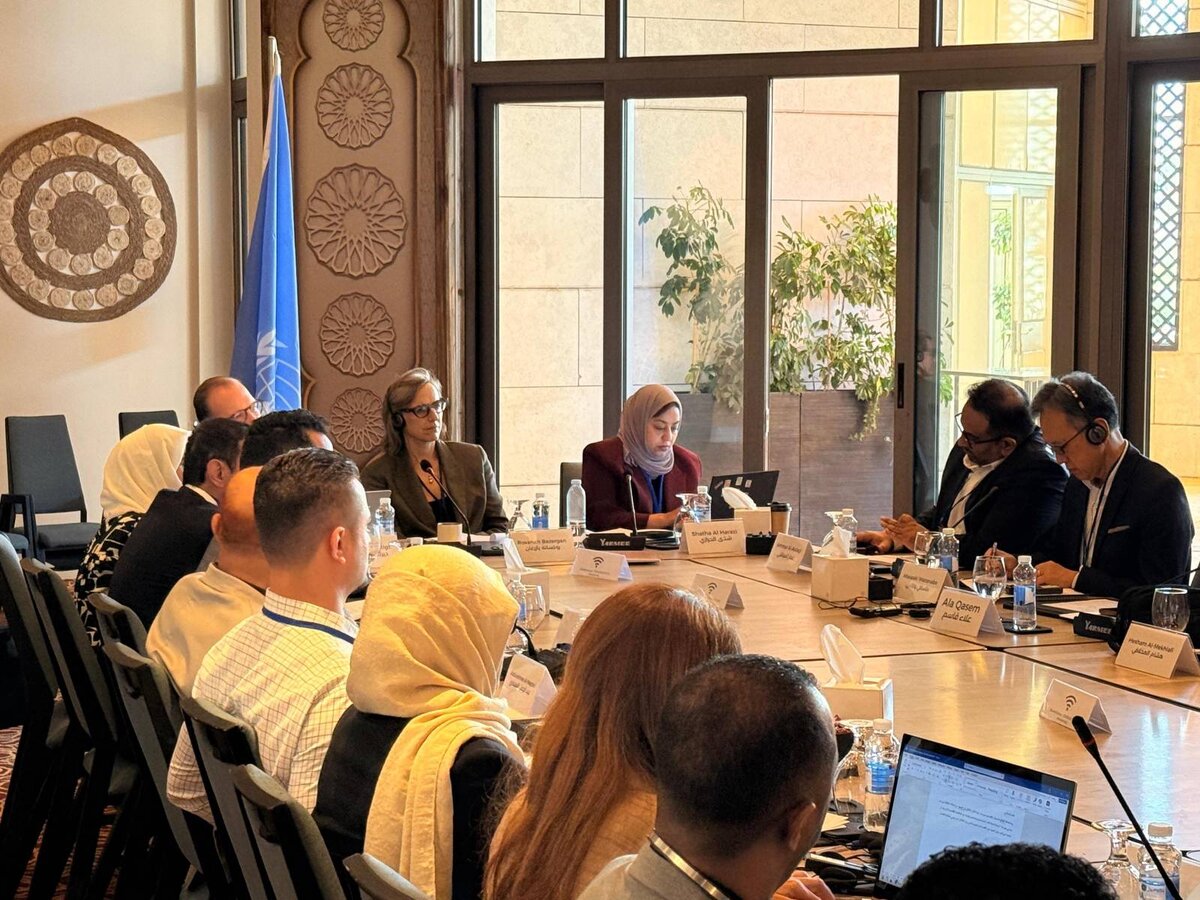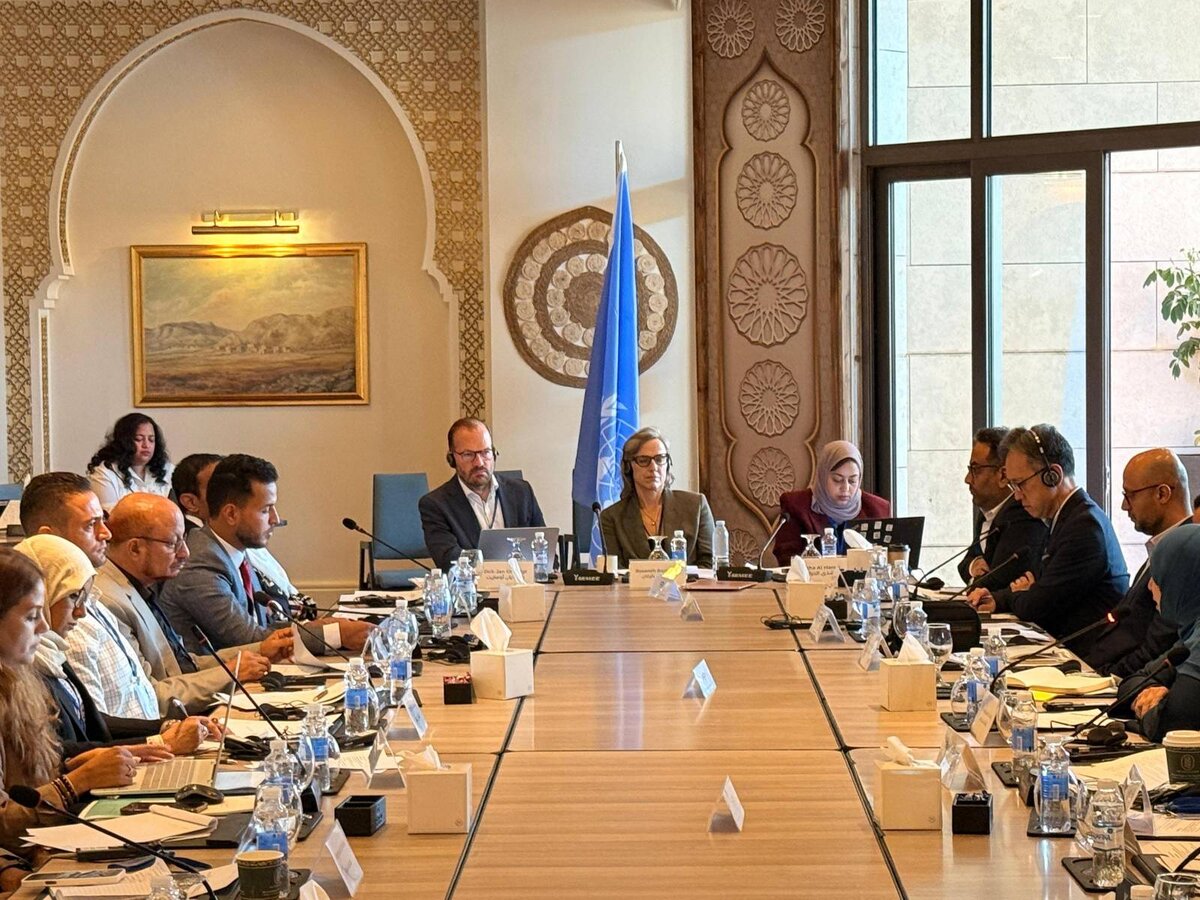Technical exchange on justice, economy and reforms pathways
The Office of the Special Envoy of the Secretary-General for Yemen (OSESGY) convened a technical exchange in Amman on 28–29 September 2025, bringing together Yemeni and international experts in economics, justice, institutional reform, the judiciary, civil society, human rights, and academic research.
Recognizing the deep economic harm and deterioration of essential services caused by the decade-long conflict, the two-day discussions focused on ways to address economic governance and service-delivery alongside ways to advance fairness, redress, and institutional reliability in forms that people can tangibly experience in their daily lives.
Advancing economic reforms without delay
In the Yemeni context, participants highlighted the importance of advancing practical measures even in the absence of a comprehensive political settlement. They stressed the need to take immediate steps toward fair and economic-centered reforms, while also noting the need to begin considering approaches to redress for those affected by the conflict. Such measures could be linked to strengthening the institutions, thereby helping to address grievances and strengthen public confidence. Participants further noted that these steps should be anchored in an appropriate framework to ensure transparency and sustainability. The Amman discussions provided an opportunity to explore these ideas with technical experts and to assess their broader feasibility within Yemen’s economic reform and justice agendas.

Bridging economic collapse and human-centered justice
Participants underscored that Yemen’s conflict has produced systemic economic harms: sharp GDP per-capita decline, service collapse, corruption, institutional dualities, currency depreciation, and weakened safety nets. These realities have fueled further weaponization of the economy, deepened public distrust, and deteriorated daily life conditions, especially for public servants, displaced families, and low-income communities. They noted that even violations often framed as civil and political (such as arbitrary detention or enforced disappearance) carry lasting economic consequences for families and communities.
They emphasized that concepts like fairness, justice, and redress must be measured by tangible improvements in people’s daily lives: stable incomes, access to essential services, restitution or return of property, and genuine opportunities for employment and reintegration. Participants also expressed the importance of grounding discussions in lived experiences rather than diplomatic positioning, making space for voices that reflect how people actually feel the impact of the conflict.
From economic harm to meaningful remedies
Participants emphasized that addressing economic harm is indispensable, but on its own, it cannot provide a comprehensive foundation for reconciliation and sustainable just peace. They noted, for instance, that reparations should not be limited to financial compensation. Remedies need to encompass restitution of property, psychosocial rehabilitation, acknowledgment and apologies, community-level initiatives, and guarantees of non-recurrence. Only such a holistic approach, they stressed, can meaningfully respond to the wide range of harm endured by individuals and communities.
Within this perspective, some measures were described as “low-regret options” that could be advanced in the short term without prejudging political outcomes. Examples included strengthening transparency, documentation, and registries of harm, providing psychosocial support to victims and their families, as well as protection, restoring essential public services, such as access to housing, health, and education, and developing standardized administrative tools to guide future reparations programs. Participants highlighted that grounding these measures within a clear legal framework would be essential to prevent misuse, guarantee rights, and provide consistency across different forms of remedy.

Moving forward
Participants reflected on how linking the economy to the concepts of transitional justice and redress could offer entry points for progress even before a comprehensive political settlement is achieved. They noted that economic-centered measures, if carefully scoped, have the potential to build trust, address immediate grievances, and create momentum for broader reconciliation efforts.
OSESGY extends its gratitude to the Hashemite Kingdom of Jordan for its continuous support in hosting these vital discussions, which mark a meaningful step forward in Yemen’s journey toward a Yemeni-owned political process.
 UN
UN







